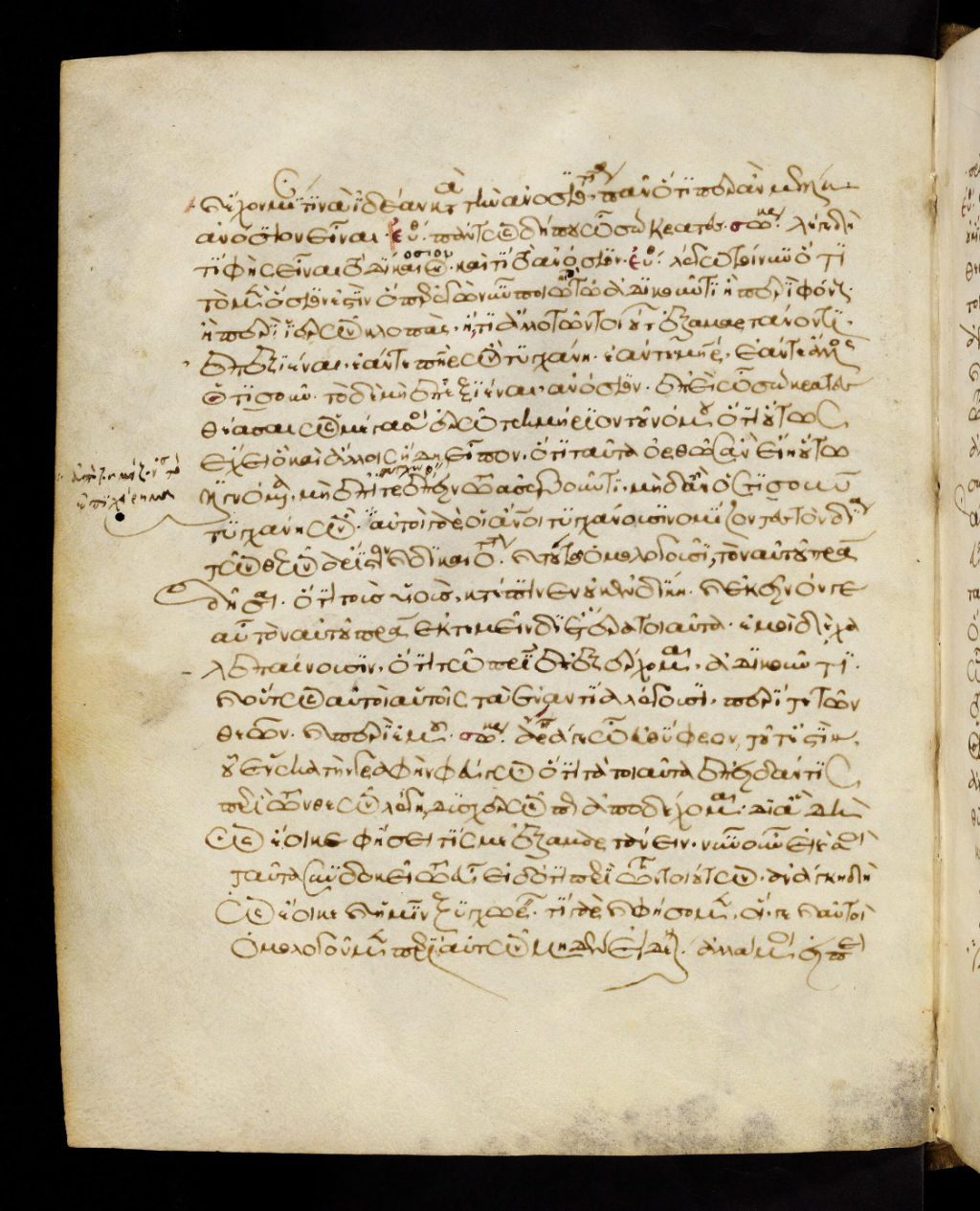The Past as Resource Knowledge
 Page from Platon handwriting (Codex Tubingensis) | © Universitätsbibliothek Tübingen
Page from Platon handwriting (Codex Tubingensis) | © Universitätsbibliothek Tübingen
Subproject:
C 02 Resources and their Literary (Re-)Construction in the 4th Century B.C. The Past as Resource Knowledge
Project leadership:
Prof. Dr. Irmgard Männlein-Robert, Prof. Dr. Karl-Heinz Stanzel, Prof. Dr. Mischa Meier
Staff:
Lena Vidoni M.A., Nadja Mozdzen M.A.
Region:
Greece
What role does real or fictional historical knowledge in philosophical and political discourses play? How is it generated and instrumentalized?
The real or constructed past and the knowledge it contains are also a resource in the sense of the SFB 1070. The subproject ‚Resources and their Literary (Re-)Construction in the 4th Century B.C. The Past as Resource Knowledge’ examines how this resource was used in discourse. Athens in the 4th century B.C. is particularly fitting as an object of study for this question: after the Peloponnesian War, the city-state lost influence and had to reorient itself economically, militarily and politically. Whilst this time period, an intensive examination of different concepts of order and the (imaginary) own past took place. In addition, these discourses are well documented in written records.
The starting point is formed by Platos recorded texts and about a hundred preserved Attic speeches from politics and the judiciary (e.g. from Lysias, Isokrates, Demosthenes, Aischines and Hypereides), as well as the existing building stock, such as the enlarged Pnyx, a central gathering place in Athens.